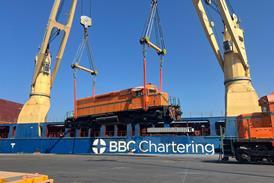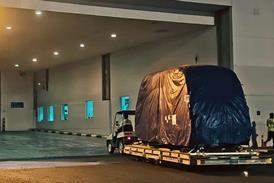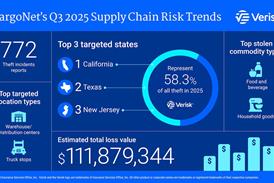There has been a concerted push from all sides of the logistics sector to adopt new technologies and realise both cost and environmental efficiencies. One technology that has gained increasing attention from the shipping sector in particular is electronic bills of lading (eBL) but there are a number of challenges that are preventing them from becoming a commercial and legal norm.
During April, MSC Mediterranean Shipping Company (MSC) became the latest shipping company to push forward with the introduction of an eBL on the independent blockchain platform WAVE BL. MSC said that the eBL enables shippers and other key supply chain stakeholders to receive and transmit the bill of lading document electronically, without any change or disruption to day-to-day business operations.
The blockchain-based system uses distributed ledger technology to ensure that all parties involved in a cargo shipment booking can issue, transfer, endorse and manage documents through a secure, decentralised network.
Speaking of the roll out, André Simha, global chief digital and information officer at MSC, said that an eBL solution is a critical step in the overall digitalisation of the industry. Simha, who is also the chairman of the Digital Container Shipping Association (DCSA), added: “Traditionally, the shipping industry has relied quite heavily on physical paper documents. And among these, the bill of lading is the most important transport document in international trade.
“While there have been attempts to create an eBL solution in the past, we are now in a position to introduce a solution that can pave the way to mass eBL adoption, which will mean significant savings for the shipping industry.”
DCSA research indicates that by achieving just 50 percent eBL adoption by 2030, the industry could potentially save more than USD4 billion per year. The solution also enables faster document transfers, which in turn, leads to a shorter payment cycle – and electronic processes are far less susceptible to forgery, fraud, loss or human error.
The solution sounds promising but there are still obstacles that need to be overcome. Nick Austin, a shipping partner in law firm Reed Smith’s transportation industry group, said: “There seems little doubt that shipping is approaching a paradigm shift in its adoption of digital technology. eBLs, autonomous ships and blockchain are all emerging, at speed, to drag the shipping industry into the 21st century. But adoption is uneven and there is evidence of a growing divergence in digital standards, presenting a significant barrier to widespread and effective adoption.
“In addition to the clear and present danger of cyber fraud, eBLs face a number of hurdles. One of the most significant is how to replicate the law and regulations behind a traditional paper bill of lading in electronic form so as to give the eBL functional equivalence. And not just in one jurisdiction, but uniformly across legal systems so that e-bills can be truly effective in international trade.
“Adoption of the UNCITRAL Model Law on Electronic Transferable Records (ETR) is one tangible way of achieving that, but take-up is low. Instead, most maritime law systems, including the English-based common law system, have barely got to grips with the legal implications of e-bills, despite their being around since the 1990s.”
He said that until more countries adopt suitable legislation, eBLs and the technology behind them cannot become a commercial and legal norm. “In turn, the shipping laws that underpin the resolution of disputes in the leading maritime arbitration centres cannot develop,” he added.
















